#reductionism
Text
Saw yet another bullshit take that everything is about love and love is what makes us human and I will again remind you of the following
1. Reducing humanity to a single emotion will always exclude some people who choose to avoid that emotion, have a complicated relationship with it, or cannot identify/feel it.
2. Not all humans have experienced love in a way that was healthy or safe and assuming that love is a default "good" emotion is potentially hurtful and/or triggering.
And
3. Humans are capable of experiencing dozens of emotions love is just one of these emotions and should not be upheld as more important or worthy than any other emotion.
5K notes
·
View notes
Text
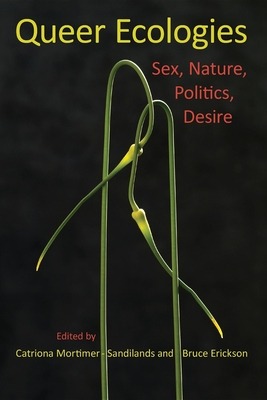
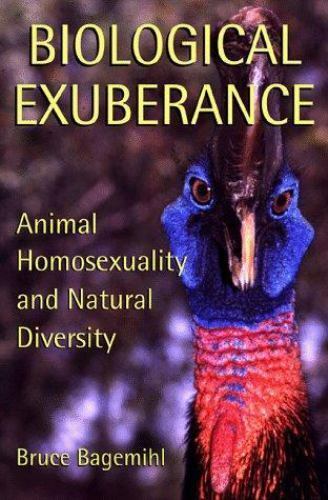
Eluding Capture: The Science, Culture, and Pleasure of “Queer” Animals by Stacy Alaimo
The chapter begins with three separate quotes—the one that speaks to me the most is by Bruce Bagemihl and his theory of Biological Exuberance where he defines it as, “above all, an affirmation of life’s vitality and infinite possibilities: a world that is at once primordial and futuristic, in which gender is kaleidoscopic, sexualities are multiple, and the categories of male and female are fluid and transmutable. A world, in short, exactly like the one we inhabit” (51).
Alaimo’s opening sentence is a powerful one, “’Nature’ and the ‘natural’ have long been waged against homosexuals, as well as women, people of color, and indigenous peoples”(51).
Queer theory is guilty of trying to fully separate nature/natural from queer desire, attempting to make queer sexuality a uniquely social, human phenomenon. When the reality is that nature is awash with examples of gender and sexual diversity. The question and larger discourse ask; is nature queer? Can nonhuman nature be queer? and if so, what might that mean for other discourses?(What are the implications?) Alaimo states that we need better, ‘more robust and complex’ ways of engaging with materiality, that account for the diversity and ‘exuberance’ of a “multitude of naturecultures” (52).
Books such as Bruce Bagemihl’s Biological Exuberance: Animal Homosexuality and Natural Diversity (1999) (among many other examples) present possibilities for “radically rethinking nature as queer, by documenting the vast range of same-sex acts, same-sex childrearing pairs, intersex animals, multiple ‘genders’, ‘transvestism’ and transsexuality existing throughout the more-than-human world. Bagemihl restricts himself to mammals and birds but still manages to discuss nearly three hundred species and over 200 years of scientific research. “Bagemihl’s exhaustively researched volume renders any sense of normative heterosexuality within nature an absurd impossibility” (52).
Alaimo provides several other examples of challenges to heteronormativity in nature in recent years, including an exhibition at the Natural History Museum at the University of Oslo in Norway called, “Against Nature?” (2007). According to the website for the exhibit, “Homosexuality has been observed in most vertebrate groups, and also from insects, spiders, crustaceans, octopi and parasitic worms. The phenomenon has been reported from more than 1,500 animal species, and is well documented for 500 of them, but the real extent is probably much higher” (Against Nature 2007)(54).
The author argues that recognizing the sexual diversity of animals has several significant benefits; heteronormativity has damaged and diminished scientific knowledge (the author uses biology, anthropology as examples but I’d say this is an issue that science in general must contend with). The ‘scientific silence on homosexuality in animals amounts to a cover-up, deliberate or not’ (54) and thus scientists have a duty to correct this.
Researchers have documented how the ‘majority of scientists have ignored, refused to acknowledge, closeted, or explained away their observations of same-sex behavior in animals, for fear of risking their reputations, scholarly credibility, academic positions , or heterosexual identity” (54). Alaimo then gives examples of cases where this was the case in varying levels. As we’ve learned, the assumption of heterosexuality as the ‘only natural form’ is not an ‘appropriate benchmark for ecological research’ (54) and heteronormative bias might render already difficult work even more so.
“Endocrine disruptors alone demand an extraordinarily complex and nuanced understanding of the ‘mangling’ of environmental science, health, and politics, with misogyny, homophobia, and other cultural forces’ (55). The author recognizes that rather than simply tossing ‘queer animals into the ring of public opinion to battle the still pervasive sense that homosexuality is unnatural, we need to embrace the possibilities for the sexuality diversity of animal behavior to help us continue to transform our most basic sense of what nature and culture mean’ (55).
Alaimo’s continues by saying that biological exuberance, vast diversity ‘deviance’, and astonishing difference make nonsense of biological reductionism and the idea that animals are ‘genetically driven machines’ but creatures who exist fully within their own ‘naturecultures’ (56).
#queer ecologies: sex nature politics desire#heteronormativity#queer animals#animals#nature#biological exuberance#animal sexuality#queer ecology#ecofeminism#queer theory#critical ecology#naturecultures#reductionism#sociology
35 notes
·
View notes
Text
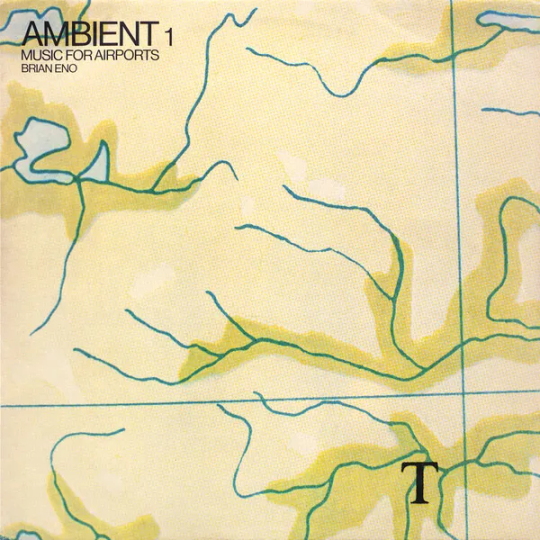
Tracklist:
1/1 • 2/1 • 1/2 • 2/2
Spotify ♪ Youtube
#hyltta-polls#polls#artist: brian eno#language: instrumental#decade: 1970s#Ambient#Minimalism#Choral#Tape Music#Reductionism
29 notes
·
View notes
Text
Ti Platonism
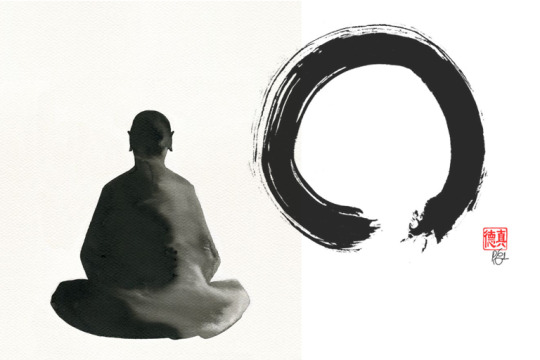
Search for Universal Axioms
While it might be said that all types seek truth of a sort, to the Ti user the quest for truth has a very specific meaning. He is not satisfied with the acquisition of information and indeed he generally avoids information, but is instead drawn to eternally narrow his search down to what he believes is the core of a thing - beyond the senses and beyond the confines of space or time. He'll aim to get rid of as much as is unnecessary, until only the essence remains. To him, truth means landing upon some elusive and singular convergent principle or nexus which gives formulation, symmetry and justification to everything else in the conscious universe. The Ti user, it may be said, is on a quest for a philosopher's stone. He will dig for it in all manner of philosophy and theories of the mind and this can cause them to become obsessive in their pursuits, and abandon all sense of context in their research. They may forget that they are not making tangible progress towards any scientific or objective aim, but instead are diving headlong into a conceptual challenge. Indeed it is an epistemological challenge with the bait of the One Truth at the end of it which they chase. And whether this truth is ever known by the Ti user is irrelevant to the visceral belief in its existence. Even if he has come to doubt all truth and has entered an existential dead end in his pursuit, so that he only knows that he knows almost nothing, he was lead into this territory by an inarticulated but deep rooted suspicion that something is there just waiting to be crystallized into knowledge.

Reductionism
For the Ti user the world is often seen as a place of incongruences and complexities; of paradoxes and mysteries. Everything is operating from unchecked assumptions on top of assumptions with no explanation given for why any such thing is to be believed. The world seems utterly chaotic and nonsensical, and this causes a great deal of stress especially as it relates to the pursuit of axiomatic truth. In order to alleviate this, Ti often executes a reductionist methodology wherein all unjustified things are negated, in an effort to eliminate all untruths and see what is left. Ti in its purest sense will not wish to adapt any form of knowledge or information if it does not understand its underlying formation. It will feel that if the starting premise within them is not correct, then the entire foundation is faulty and all else that can be built from it will be askew. It therefore obsesses over the accuracy of the first few blocks and cornerstones of its epistemology, forcing Ti often times into an infinite regression loop of doubt. If told "go to school" then may think "what is school" and from there proceed to ask "what is a degree?" and "what makes knowledge gained at a school desk more valid than what is self-taught?" This can be terribly frustrating to family members as it may appear that the Ti user is rationalizing his way out of responsibility, when in reality he is contending with the existential questions of meaning, value and purpose - which often must be addressed for them first before a single finger can be lifted towards a task. This can be problematic as Ti will tend to reduce social norms/ideas/things down to parts, without putting them back together. These thoughts will occupy the Ti user's mind continually and may cause things to lose their value as the process of reduction strips away all meaning. At its most extreme this can lead to to existential dilemmas and nihilism even when nothing in life would suggest a reason to be unhappy. As Ti is a subtractive process by nature, it acts as a diagnostic process that identifies misalignment in any system of premises. Hence it tends to be far better at identifying what things are not, than what things are. It is often up to the other functions to counterbalance Ti's influence and provide positive affirmation for reasons, motivations and purposes.

Castle Construction
However, if enough of a theoretical foundation has been set in the mind of the Ti user, then what emerges is a crystalline structure at the core of their being. Like the growth of an ice crystal from water, a theoretical castle begins to form. Each block of this castle is a premise or argument that helps structure the incoming information of reality in such a way as to create an interpretive scaffold. For Ti, this scaffold serves as a sort of Rubik's cube or kaleidoscope that allows the complexities of life to be viewed and understood from a convergent point. Should there ever be a mismatch between the reality outside of them and the kaleidoscope's prediction, the Ti user hurries to try to reformulate and refine their instrument (to fix the Rubik's cube), but an instrument they must use. The Ti user does not interface with reality directly, but does so through this instrument which acts as their proxy and go-between and allows them to make sense of things without needing necessarily to engage in the difficult task of materialism or empiricism. This leads inescapably to the formation of a personal theory, often beginning with phenomenology of the mind/consciousness. One such example of a crystalline theoretical structure is René Descartes' "cogito ergo sum" which, through his efforts and thoughts, was the cornerstone he came to develop and which helped him make sense of all other premises that cascade from this first axiom. But each Ti user may place a different conclusion as their starting premise. For some, the fundamental principle may be consciousness, for others it may be bodily experience, and for others it may be God or love.

Ontology & Linguistics
The Ti function is inherently philosophical in nature, producing in the Ti user a gravitation towards what we might call ontology. It becomes important to the Ti user to define what things are in and of themselves. In this sense, Ti seeks to describe reality absolutely and almost as though they were to vanish themselves from existence. It must be able to be true without them in the picture, otherwise it is not true. By this metric Ti seeks for a sort of timeless abstract definition for everything. The Ti user usually seeks to encapsulate the essence of a thing through semantic precision; meticulously working out where the boundaries lie between two adjacent thought groupings. There is little more satisfying to them than when data suddenly clicks into perfect arrangement, revealing a fundamental truth. The Ti user lives for these rare and magic moments of clarity and by engaging in this differentiation process, they gain a firm mental grasp on the world; dissipating the fog of the unknown. The further the Ti user is from clarity of definition in his own thoughts, the more internal dissonance will be felt. This can also make the Ti user a bit of a grammar nazi and their semantic proclivities can lead them to spend hours discussing starting terms without ever making headway related to the real-world problem in question. The Ti user may be highly stimulated by such a discourse even though the original point of the discussion has been left far in the past. More than a few Ti users thus take to linguistics for their proximity to philosophy and their capacity to organize the very structure of our knowledge paradigms.
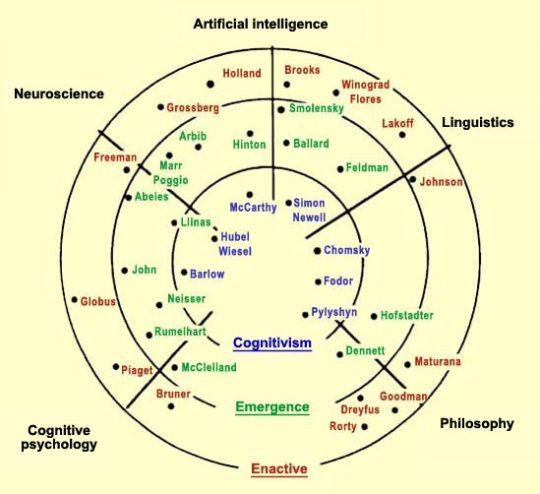
Perfectionism
Additionally, there is a perfectionist quality to the Ti user wherein their personal desire for purity of logos is at once a desire for purity of the self. Indeed, the Ti user's success in building this logic framework is tied to their sense of identity, as they may view themselves primarily as a truth-seeker and truth-speakers. There will be an ethical quality to their pursuit which manifests in a valuing of neutrality, honesty, authenticity and clarity. Lack of neutrality, honesty or lack of clarity will be sensed as a transgression; one which they avoid in their own behavior and which they may also depreciate in others. As a compass function, Ti will strive for a type of nobility of character which it can sustain only if it feels it is being honest with itself and avoiding as many impurities as possible in its own thinking. This high personal standard can cause the Ti user to become entirely mute as their ignorance forces them to retract any opinion or utterance that they cannot firmly stand behind. The strong Ti user may be a very silent presence at school or in the workforce, speaking only occasionally and after minutes or hours of reflection on what he wishes to say. If their logical devotion is towards an art project or creative endeavor, the same bottleneck may appear, causing them to hesitate in publishing any works until everything feels entirely perfect. They may feel their works are never quite precise enough and will spend countless hours in the refinement process - aiming always for their writings, paintings or manifestations to capture their thoughts and intentions with no compromise. This can lead to negative feelings and self-blame forming for mistakes made or inaccurate information given.

Stubborn Alignment to Framework
While the Ti user may not know many things, he will stand firm by what he does know. The Ti user can be stubborn and difficult to negotiate with if they have fixated on certain ideas they feel are true, and so long as their idea remains in their head, their heels remain sunk in that interpretation. This can lead them to become impractical in many real-world situations when the consequences of their carefully crafted definitions collide with certain necessary actions and obligations. They’ll often refuse to participate in something that seems necessary to some, but misaligned to them. And while no amount of pressure, external circumstance or logistical necessities can bend their opinion, a properly aimed rebuttal can radically shift their entire stance in moments. The Ti user's logical apparatus operates like a lock combination. When the right inputs (deductions) are received, suddenly the gates of their thoughts reconfigure and allow for a completely new mental trajectory to be possible and new actions to emerge from them. But without this reconfiguration, they may remain deadlocked in certain conclusions or philosophies even when those conclusions are negative and harmful to them. The strong Ti user must reason his way out of a certain conceptual hole and cannot simply ignore it or choose a more convenient path which doesn't fit into the structure and rules of their self-made castle.

-Behaviors Under Stress
Emotional Shutoff
When the stress and gravity of life cause a fall out of emotional health, the strong Ti user's already faint emotional energies become even more deeply coveted. Unable to operate meaningfully in the environment, they will flee fully from the world and into a protective barrier of their own making. They will shut off emotionally and may become suspicious and avoidant of intrusions to their private space. This can lead to a very isolated experience where they feel they can only rely on themselves to figure out the answers to emotional problems which it often treats as intellectual problems. Driven equally by feelings of self-sufficiency and fear of emotional openness, they will aim to shoulder their pain entirely alone.
They will meet the problem with callousness of feeling. What is not felt cannot hurt, and here their natural capacity for dispassion is repurposed and used to strip power away from the heart. They may sever their connection to others with surprising ease, and forget the magnitude of their inner affect. What is non-ideal is rejected as they continue their pursuit for the ideal both in themselves and others. Yet the content remains present but buried in the unconscious, and they may harbor unresolved feelings for years at a time – often freezing their heart in the process. Merciless as they may be, they will intellectualize their decisions, satisfying their need to act from just premises and retain a proper sense of self.
Wailings and charged emotional reactions may be perceived as irrational and therefore inappropriate and to be avoided. However, as stress accumulates further, their logic will become gradually more distorted as they aim to rationalize what is essentially an emotional objection underneath. Unable to clearly and cathartically convey their heart’s voice, having stripped it of its power, their inner pains will emerge through distorted logical arguments and skewed claims. Their tendency to intellectualize matters of the heart will lead them to push the narrative into a form that aligns with their repressed feelings. As their stress furthers, they may disconnect themselves from others entirely and fall into schizoid tendencies.

Hyper-Focus on Imperfections
In another scenario, if the Ti user's heart remains open, they meet the problem with honesty of feeling. In their pursuit for authenticity of self, they allow the full gravity of their situation to hit them and they familiarize themselves with their darkest disappointments, losses and despair. Because they are perfectionists by nature, they will turn their attention to themselves to understand what is wrong. They may come to feel responsible for all that is not going well in their life and will be prone to episodes of melancholy and deep ruminations about their shortcomings. Worse yet, if a conclusion emerges (“I’m horrible”, “I’m responsible”) that cannot be rationally refuted, be it true or not, they will need to continue believing it in order not to betray their compass, even if believing such a thing causes continual pain. Moving past certain damages can be challenging unless their paradigm changes to reinterpret their past in a way that puts them in a more merciful place. They will have trouble accepting positive emotions just for the sake of it, without cause to feel positive. They will feel dubious of any trajectory of healing that isn’t somehow also justified in a certain sense. In this way, they do themselves no service; holding onto their negative beliefs so adamantly can be the cause of their own demise.

#Cognitive Typology#Cognitive Functions#Introverted Thinking#Ti#INTP#ISTP#Behaviorism#Platonism#Search for Universal Axioms#Reductionism#Castle Construction#Ontology#Linguistics#Perfectionism#Stubborn Alignment to Framework#Emotional Shutoff#Hyper-Focus on Imperfections#Void
57 notes
·
View notes
Text
"Intellectual passion drives out sensuality."
-Leonardo da Vinci (Italian Renaissance painter and polymath, 1452-1519)
#quotez#quote#davinci#renaissance#intellect#thinking#overthinking#reductionism#reductive#passion#sensuality#intuition
20 notes
·
View notes
Text
Theories of the Philosophy of Chemistry
The philosophy of chemistry encompasses various theories and perspectives that seek to understand the nature of chemistry as a scientific discipline and its relationship to other areas of inquiry. Here are some prominent theories within the philosophy of chemistry:
Reductionism: Reductionism in the philosophy of chemistry posits that chemical phenomena can ultimately be explained by reducing them to the behavior of atoms and molecules at the micro-level. This approach seeks to understand complex chemical processes in terms of the interactions and properties of individual particles.
Emergence: In contrast to reductionism, emergentism suggests that chemical properties and behaviors emerge at higher levels of organization and cannot be fully explained by reduction to fundamental particles alone. Emergentist theories emphasize the novel properties that arise from the interactions of chemical substances and complex systems.
Structural Realism: Structural realism is a philosophical stance that emphasizes the importance of the structure of theories in understanding the nature of reality. In the context of chemistry, structural realists argue that chemical theories capture the underlying structural relationships among chemical substances and properties, even if the theoretical entities themselves may not directly correspond to observable entities.
Operationalism: Operationalism is a philosophical approach that defines scientific concepts in terms of the procedures or operations used to measure or manipulate them. In chemistry, operationalism emphasizes the importance of experimental techniques and procedures in defining chemical concepts and theories.
Ontological Pluralism: Ontological pluralism acknowledges the existence of multiple ontological levels or domains of reality, each characterized by its own set of entities and properties. In the philosophy of chemistry, ontological pluralists may argue for the coexistence of different ontological frameworks, such as molecular, macroscopic, and emergent levels of description.
Instrumentalism: Instrumentalism is a philosophical view that regards scientific theories as tools or instruments for predicting and explaining observable phenomena, rather than providing literal descriptions of reality. In chemistry, instrumentalists may view chemical theories as pragmatic frameworks for organizing and interpreting experimental data, without necessarily committing to the ontological status of theoretical entities.
Process Philosophy: Process philosophy emphasizes the dynamic and relational nature of reality, viewing entities and phenomena as processes or events unfolding over time. In the philosophy of chemistry, process philosophers may emphasize the importance of chemical reactions and transformations as central to understanding the nature of chemical substances and properties.
Holism: Holism is a philosophical perspective that emphasizes the importance of understanding systems as wholes, whose properties cannot be fully explained by analyzing their individual parts in isolation. In chemistry, holists may argue for the importance of considering the systemic and contextual factors that influence chemical phenomena, rather than focusing solely on the behavior of individual molecules or particles.
These are just a few of the many theories and perspectives within the philosophy of chemistry, each offering unique insights into the nature of chemical science and its relationship to broader philosophical questions.
#philosophy#epistemology#knowledge#learning#chatgpt#ontology#education#metaphysics#Reductionism#Emergence#Structural realism#Operationalism#Ontological pluralism#Instrumentalism#Process philosophy#Holism#Philosophy of science#Scientific theories#Chemical ontology#science
3 notes
·
View notes
Link
How to abort a scientific renaissance
#empiricism#Oxford#Tavistock#Malthus#randomness#reductionism#Darwinism#Huxley#Bertrand Russell#Hobbes#Leviathan#technocracy#social engineering#dehumanization#groupthink#elitism
2 notes
·
View notes
Text


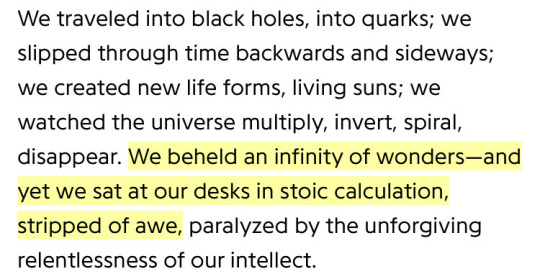
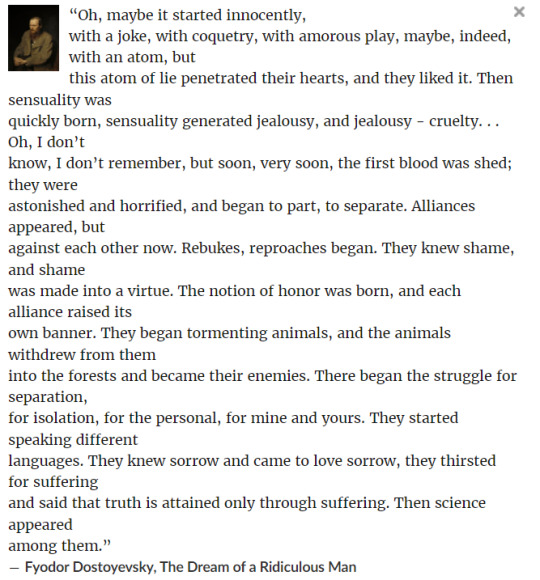

I don’t rly feel this way (*is literally a stem major*) but I do think these are rly interesting parallels
War and Peace by Tolstoy // Deathconsciousness by Have a Nice Life // Little God by Octet // The Dream of a Ridiculous Man by Dostoyevsky // Notes from the Underground by Dostoyevsky
#war and peace#leo tolstoy#deathconsciousness#Have A Nice Life#Dostoyevsky#notes from underground#web weaving#reductionism#?? is the right word for this i think#octet#dave malloy
13 notes
·
View notes
Text
"Reductionism envisages a universe of things - and simply material things at that. How these things are related is viewed as a secondary matter. However, I suggest that relationships are primary, more foundational than the things related: that the relationships don't just 'connect' pre-existing things, but modify what we mean by the 'things', which in turn modify everything else they are in relationship with. That is because what we are dealing with are, ultimately, relations, events, processes; 'things' is a useful shorthand for those elements, congealed in the flow of experience, that emerge secondarily from, and attract our attention in, a primary web of interconnexions. I have nothing against things, provided we don't see them as primary."
—Ian McGilchrist, The Matter With Things.
3 notes
·
View notes
Text

Brother, Sister
Old painting in did a few years ago in high school, a minimalist rendition of an album from one of my favorite bands, mewithoutyou. Check them now you will not regret it go do it do it now
#mewithoutyou#brother sister#catch for us the foxes#a to b life#punk rock#minimalist art#minimalist#reductionism#folk music#vasily kafanov
21 notes
·
View notes
Text
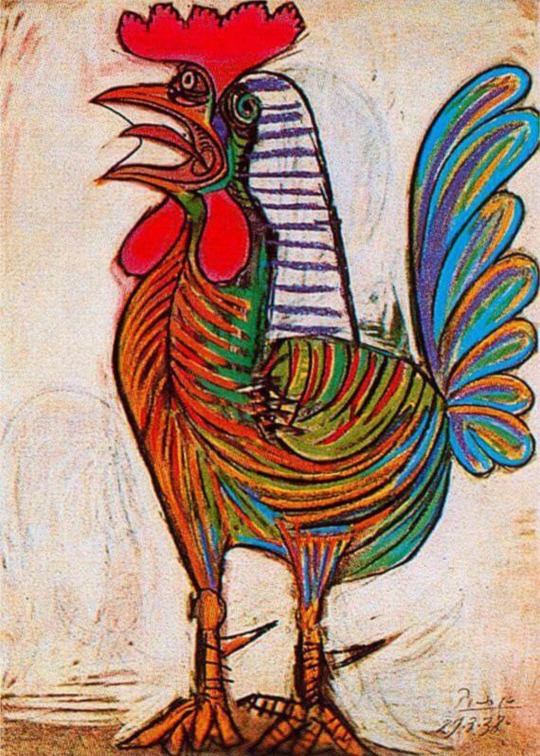
Le Coq ○ Pablo Picasso ○ 1938
#picasso#pablo picasso#art#artists#painting#cubism#reductionism#le coq#ha ha funny word#the rooster#early 1900s#1930s#1900s#1900s art
2 notes
·
View notes
Text
“What the Enlightenment did was to develop its own set of myths, striking pictures whose attraction usually centres on the lure of Reduction — the pleasure of claiming that things are much simpler than they seem. This often appears in the bracing form of nothing buttery. Propositions such as that ‘a human being is only £5 worth of chemicals’, or ‘human action is only external behaviour’, or ‘consciousness is just the interactions of neurones’, have the attraction of seeming to make life simpler because they are simple in themselves. The difficulty only comes when we try to work out what they mean and connect them with the rest of the world.”
— Mary Midgley, The Myths We Live By, 2012
7 notes
·
View notes
Text
There are only two types of things in life and they are oddly intimidating things and oddly amusing things
#alternatively: life is always ironic but the irony can be in either direction#thoughts#theory#philosophy#life#oc#fear#humor#humour#some stuff fall into both categories but ultimately lean more towards one of them#analysis#universal#universality#binary classification#black and white worldview#reductionism#reductionist#writing#my writing#irony
1 note
·
View note
Photo

Paddleboarder under Hunt cliff Tokina 70-210 SD & Panasonic GX9 #paddleboarding #paddleboardinguk #coast #saltburn #landscapephotography #seascapephotography #summervibes #blackandwhitephotography #monochrome #vintagelensphotography #vintagelensphotographer #northyorkshirephotographer #northyorkshirephotography #panasoniclumix #gx9 #tokina #northyorkshirecoast #minimalism #reductionism #reductionistphotography #paulbradley #photography #paulbradleyphotography #scudmonkey (at Saltburn Beach) https://www.instagram.com/p/CgJ8KzND-ZH/?igshid=NGJjMDIxMWI=
#paddleboarding#paddleboardinguk#coast#saltburn#landscapephotography#seascapephotography#summervibes#blackandwhitephotography#monochrome#vintagelensphotography#vintagelensphotographer#northyorkshirephotographer#northyorkshirephotography#panasoniclumix#gx9#tokina#northyorkshirecoast#minimalism#reductionism#reductionistphotography#paulbradley#photography#paulbradleyphotography#scudmonkey
6 notes
·
View notes
Text
Theories of The Philosophy of Matter
Matter is anything that has mass and takes up space. It is the physical substance that makes up the universe, including all the objects and substances we interact with in our daily lives. Matter is made up of atoms, which are themselves composed of subatomic particles such as protons, neutrons, and electrons. These particles are governed by the laws of physics and interact with each other through various forces, such as electromagnetism and the strong and weak nuclear forces. The study of matter and its properties is a fundamental part of many fields of science, including physics, chemistry, and materials science.
The philosophy of matter deals with the fundamental nature of matter, including its properties, composition, and behavior. Here are some theories related to the philosophy of matter:
Atomism: This theory holds that everything in the universe is made up of atoms, which are the smallest indivisible units of matter. Atomism was developed by the ancient Greek philosopher Democritus, and has been influential in the development of modern science.
Materialism: This theory holds that matter is the only substance in the universe, and that everything can be explained in terms of the properties and behavior of matter. Materialism is often associated with the scientific worldview and has been influential in the development of modern physics.
Dualism: This theory holds that there are two kinds of substances in the universe: material substances and non-material substances (such as the mind or soul). Dualism has been influential in philosophy and religion, but is often criticized for its lack of empirical support.
Process philosophy: This theory holds that the universe is a series of ongoing processes, rather than a collection of static objects. Process philosophy emphasizes the dynamic nature of matter and has been influential in fields such as environmentalism and ecology.
Idealism: This theory holds that the material world is ultimately an illusion or construct of the mind, and that reality is fundamentally mental or spiritual in nature. Idealism has been influential in philosophy and religion, but is often criticized for its lack of empirical support.
Hylomorphism: This theory, developed by Aristotle, posits that all matter is composed of a form and matter. The form is the shape or organization of the matter, while the matter is the underlying substance that makes up the object.
Emergentism: Emergentism is the theory that complex systems and phenomena can arise from simpler, more basic components. In the philosophy of matter, this theory suggests that matter can have emergent properties that are not present in its individual components.
Panpsychism: Panpsychism is the theory that all matter has some degree of consciousness or subjective experience. This theory has recently gained popularity in the philosophy of mind and consciousness, but it has also been applied to the philosophy of matter.
Neutral monism: The belief that mind and matter are both aspects of a single underlying substance, such as energy or information.
Process ontology: This theory posits that the universe is a collection of processes, and matter is simply one type of process. It rejects the idea of substance as a basic building block of the universe.
Emergent materialism: This theory posits that matter emerges from simpler processes at a higher level of organization. It recognizes the complexity of matter and the emergence of novel properties that arise from the interactions of simpler components.
Informational ontology: This theory posits that the universe is fundamentally made up of information, and matter is simply a pattern of information. It argues that matter is not a fundamental substance, but rather a manifestation of a more basic informational structure.
Structural realism: This theory posits that the structure of matter is what is real, rather than the matter itself. It holds that the structure of the universe is what determines the properties of matter, rather than the matter itself.
Non-reductive physicalism: This theory posits that the properties of matter cannot be reduced to the properties of its constituent parts. It recognizes that matter is complex and that its properties arise from the interactions of its constituent parts, but it also argues that these properties cannot be reduced to the properties of those parts.
New materialism: This theory emphasizes the active agency of matter and its role in shaping the world. New materialism rejects the traditional view of matter as passive and inert, instead emphasizing its ability to act and transform.
Object-oriented ontology: This theory posits that matter has an independent existence separate from human perception or interpretation. Object-oriented ontology holds that matter has its own intrinsic properties and relationships that are not dependent on human consciousness.
Information theory: This theory holds that matter is fundamentally defined by information. According to information theory, the properties of matter are determined by the information that is stored within it.
Reductionism: A theory that seeks to explain complex phenomena in terms of simpler components or fundamental particles, often with a focus on physics.
Holism: A theory that holds that the whole is greater than the sum of its parts, and that matter is not simply a collection of individual particles, but rather a complex system with emergent properties.
Mechanism: This theory holds that matter is made up of tiny, indivisible particles that obey the laws of physics and interact with each other mechanically.
Vitalism: This theory posits that there is a vital force or essence that animates living matter, and that this force cannot be reduced to purely physical or chemical explanations.
Material feminism: This theory explores the relationship between matter and gender. It suggests that the way we think about and interact with matter is shaped by gendered cultural and societal norms.
Process structuralism: This theory emphasizes the relationship between structure and process, suggesting that matter should be understood as a dynamic process that is constantly creating and recreating its own structure.
These are just a few examples of the many theories related to the philosophy of matter. Each theory has its own strengths and weaknesses, and philosophers continue to debate the fundamental nature of matter and its role in the universe.
#Philosophy of matter#Metaphysics#Materialism#Physicalism#Emergence#Reductionism#Ontology#Epistemology#Philosophy of science#philosophy#knowledge#learning#education#chatgpt#science#matter#physics#reality
13 notes
·
View notes